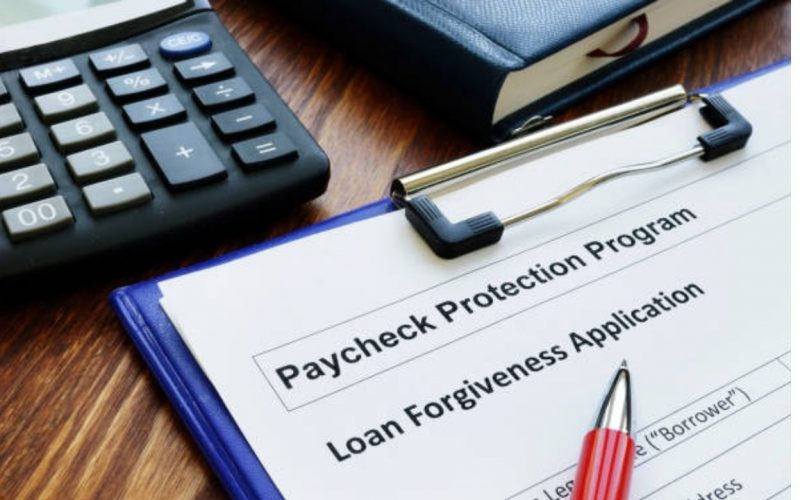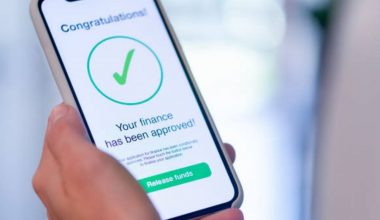A payroll loan is a fund that is given to a borrower based on their employment status and income. A payroll loan is also known as a payday loan because the amount of the loan is typically scheduled for repayment upon getting paid by an employer.
The way payroll loan function is determined by the sort of loan you select. A payroll loan, on the other hand, is usually for one year or less, with variable interest rates. Payroll loans will have higher interest rates than other types of business loans due to their short-term nature and requirement for quick liquidity.
To apply successfully for a payroll loan, kindly read through this piece to learn the full details about this program- the eligibility criteria, requirements, application and more.
What is a Payroll Loan?
A payroll loan is a cash advance that is based on the borrower’s job status and income. A payroll loan is often known as a payday loan because the loan is normally repaid when the borrower is paid by their employer. With proof of income and identification, a payroll loan can be acquired quickly.
Many payroll loan companies can process a request and give cash in a matter of minutes or hours. To qualify for a payroll loan, though, you must meet certain requirements. Most payday loan providers need collateral in the form of a checking or savings account, from which the amount owing will be directly deducted.
Fees may be charged if a borrower does not have a direct deposit from their employer since the lender faces a higher risk of not being able to recoup the loan. This increases the borrower’s obligation, as they must ensure that payments are completed in full and on schedule.
If a payroll loan is defaulted on, the financial consequences can be significant and harmful to a person’s credit score.
In sum, a payroll loan is frequently used to cover a short-term financial requirement.
How Does Payroll Work?
Short-term business loans, sometimes known as “payroll loans,” can help ensure that employees are paid in whole and on schedule. Loans against future paychecks are typically given by non-traditional lenders online due to the urgency with which they must be funded.
The specifics of how a payroll loan functions will depend on the specific sort of payroll loan that you take out. Payday loans, on the other hand, typically have durations of a year or less and charge variable interest rates. Payroll loans, due to their short-term nature and the urgency with which they must be funded, will carry higher interest rates than other types of business loans.
Given the temporary nature of payroll loans, repayment terms are more likely to be weekly or daily than monthly.
What are Payroll Rates?
Payroll loans often have interest rates ranging from 10% to 80% for short-term, small-business loan products.
Payroll loans come with interest rates that depend on a number of factors, including the sort of loan, the lender you go with, and the strength of your business’ financials.
Are Payroll Loans a Good Idea?
If you are unable to obtain regular business loans but need to send out payments as quickly as possible, a payroll loan may be your only alternative. Taking a hit on a payroll loan with a 15-30% interest rate is preferable than the repercussions of not paying your staff on time!
Types of Payroll Loan
Payroll funding solutions are commonly available in the following formats:
- Short-Term Loans
- Cash Advances
- Invoice Factoring
Short-Term Loans
Because this form of loan is intended to be returned fast, it has a short duration. Many internet lenders can arrange short-term payroll loans in as little as one business day, but you’ll need the following:
- A personal credit score in the 600s
- Be operational for at least one year
- Provide proof of business income
- Provide a postdated check for the full loan amount to ensure that the lender is repaid.
Cash Advance
You can sell a share of your business’s future credit card sales in exchange for lump-sum funding rather than taking out a loan.
In certain situations, merchant cash advances are more expensive than small company loans. However, they’re also easier to apply for because your credit score isn’t taken into account. Instead, only the credit card sales of your company are scrutinized.
Invoice Factoring
If you have overdue client invoices, you can use invoice factoring to borrow money against them. You can acquire a cash advance of up to 85% of the invoice total through invoice factoring. You can then use the unpaid invoice as collateral once you’ve received funding.
When Does a Business Need Payroll Loan?
When a company doesn’t have enough money to pay its employees, it usually has a problem with cash flow, or the amount of money that comes in and out of the company. The following are some examples of events that can impede cash flow:
- Customer payments are not received on schedule.
- Unexpected expenses have arisen.
- Revenue decreases during the offseason.
- Having an excessive amount of inventory.
- Natural disasters or other disturbances to normal business operations
How to Get a Payroll Loan
One lender’s loan application process for a payroll loan may differ from another’s. Alternative lenders may offer a rapid online application, but banks may require you to visit a branch to apply.
In general, you’ll need to supply information about your company, such as its address, name, business structure, length of operation, and yearly revenues.
You’ll also need to provide personal information, such as Social Security numbers and contact information, for yourself and any other firm owners.
You could also be requested to link your bank account so that your loan funds can be deposited swiftly
To complete a payday loan application, you must provide pay stubs from your employer that show your current level of income. Payday lenders often base their loan principal on a percentage of the borrower’s predicted short-term income.
Many also use a borrower’s wages as collateral. Lenders generally do not conduct a full credit check or consider your ability to repay the loan
If you are authorized for a loan, carefully read the loan agreement, which will detail the loan amount and interest rate, as well as the monthly payment. Sign the contract, then wait for the funds to arrive in your account so you may pay your staff.
Requirements for Payroll Loan
To qualify for a payroll loan, most lenders only require that borrowers:
- Be at least 18 years old;
- Have an active checking account; and
- Provide some proof of income as well as valid identification.
In some cases, the loan might be authorized in as little as 15 minutes. In most cases, the borrower sends a check for the loan amount plus a lending fee, which is held by the lender until a predetermined due date.
The majority of payroll loan are only for a few weeks. When the loan is due, the borrower has the option of paying it off or allowing the lender to cash the post-dated check or make another withdrawal from the borrower’s account.
Payroll Loan for Small Businesses
It’s both exhilarating and tough to start a small business. Many newly founded firms in the United States will have challenges in the first year or two, but most will overcome them. A payroll loan may often address numerous problems for a small firm when it faces a challenge.
The Small Business Administration has numerous loans that could be effectively be used for payroll and various business purposes, including the 7(a) and microloans.
However, there are long-term and short-term loans available from banks and other lenders that can enable you with payroll expenditure. The higher your credit scores, the lower the rates you can get. Keep in mind that certain short-term loans have high-interest rates, so try to repay them soon to save money.
Government Payroll Loan
Government employees can avail loans from banks and various government funds initiate with low amounts as processing charges. The maximum loan tenure for personal loans offered to government employees is 72 months.
Federal employee payroll deduction loan
Payday loans for federal government employees can be obtained without difficulty if you are a government employee with a strong credit history.
Furthermore, even if you have low credit, you can still expect decent terms; however, you can still opt for secured loans, which will provide you with even better terms.
Payroll Protection Program
The Payroll Protection Program (PPP), which is run by the United States Small Business Administration (SBA), is a loan program that stems from the Coronavirus Aid, Relief, and Economic Security (CARES) Act.
The PPP intends to assist businesses in keeping their workers employed during the COVID-19 (coronavirus) pandemic by offering eight weeks of cash flow assistance through 100% federally guaranteed loans.
Eligibility for the Paycheck Protection Program
The SBA determines eligibility based on the following criteria for entities affected by the COVID-19 crisis:
- Any small business concern that meets SBA’s size standards, either the industry based sized standard of the alternative size standard.
- Any business, 501(c)(3) nonprofit organization, 501(c)(19) veterans’ organization, or Tribal business concern (Section 31(b)(2)(c) of the Small Business Act) with greater than:
- 500 employees; or
- That meets the SBA industry size standard if more than 500.
- Any business with a NAICS Code that begins with 72 (Accommodations and Food Services) that has more than one physical location and employs less than 500 per location.
- Sole proprietors, independent contractors, and self-employed persons.
How to apply for the Paycheck Protection Program
To apply for the PPP, you must first locate a current SBA 7(a) lender or any participating federally insured depository institution, federally insured credit union, or Farm Credit System. View a state-by-state list of SBA-approved lenders.
You’ll need to fill out the PPP Loan Application and send it to your approved lender after you’ve selected one.
Payroll Protection Loan
The Payroll Protection Program provides small businesses with funds to pay up to 8 weeks of
payroll costs including benefits. Funds can also be used to pay interest on mortgages, rent, and
utilities.
Payroll Loan Forgiveness
Businesses must make a request for forgiveness to the lender that is servicing the loan. If the money is utilized for payroll, mortgage interest, rent, and utilities, the debt will be forgiven completely. Rather than the prior 75 per cent guideline, loan applicants now only need to spend 60 per cent of their funding on the payroll.
Payments on the loan will be deferred for six months, and there will be no collateral or personal guarantees necessary. The government and lenders will not impose any levies on small enterprises.
Forgiveness is granted if the firm keeps or promptly rehires personnel and keeps wage levels the same. If full-time headcount decreases or salary and compensation drop, forgiveness will be lowered.
Can an SBA be Used to Pay Employees?
The Small Business Administration offers many loans, including the 7(a) and microloans, that can be used for payroll and other business needs.
Can a Company Give a Loan to an Employee?
Employers can provide loans to their employees in a variety of ways. Employee loans can be obtained directly from your employer or from a third party.
What Is a Payroll Loan?
A payroll loan is any sort of short-term finance that allows a small business owner to pay their staff.
Short-term loans, business lines of credit, and invoice financing are the most frequent types of payroll loans.
How Do Payroll Loans Work?
A payroll loan functions similarly to any other sort of short-term financing in that you borrow money from a lender and repay it over time. The capital you borrow, on the other hand, is employed solely for the purpose of paying your employees on time and in full.
The specifics of your payroll loan, such as interest, periods, and repayment, will differ depending on the sort of financing instrument you choose.
Conclusion
The way payroll loans function is determined by the sort of loan you select. Payroll loans, on the other hand, are usually for one year or less, with variable interest rates. Payroll loans will have higher interest rates than other types of business loans due to their short-term nature and requirement for quick liquidity.
We Also Recommend
- SBA 504 LOAN REQUIREMENTS: Interest Rates for Startups and; Rental Property
- CONSUMER LOANS: Definition, Types & Rates
- Best online payday loans: Top 10 companies in 2023
- Loans: Top Opportunity for funding in 20223(detailed application guide)
FAQs PAYROLL LOAN
What are payroll loan rates?
Payroll loan rates, on average, start as low as 10% and can go as high as 80% for some short-term small business lending programs.
Naturally, the rates you receive on a payroll loan will vary depending on the sort of product, the lender you’re working with, and the requirements of your company.
Can you use a business loan to pay employees?
Payroll loans are short-term company loans that give you the cash you need to pay your employees on schedule and in full. Payroll loans are typically offered by online, alternative lenders since they require quick funding.
- Payroll Software: 10 Best Payroll Software for Businesses
- Payroll Software for Small Business: 5 Best Free Payroll Software
- Payroll Report: Detailed Guide to Payroll Report
- PAYROLL SERVICE BUSINESS: How to Become a Provider (+ How-to-Start Guide)
- HOW TO START PAYROLL FOR SMALL BUSINESS: 2023 Best Easy Guide






